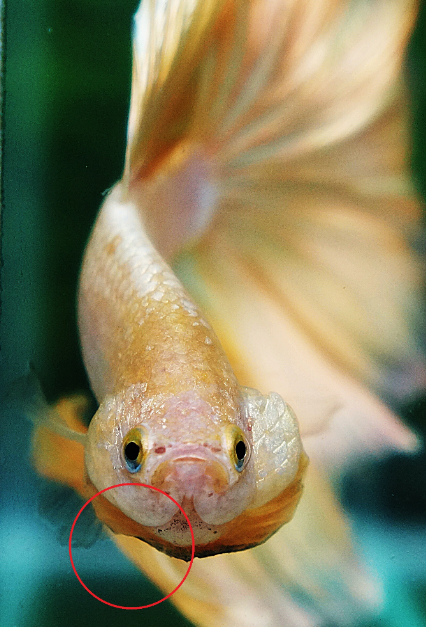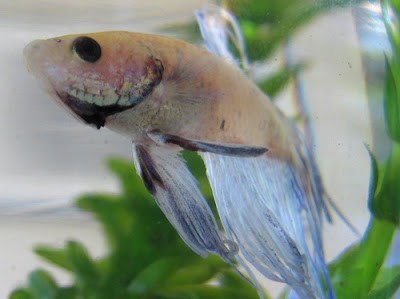Betta Gills
Attention all betta fish lovers! Have you ever noticed your betta fish flaring its gills or having darkened gill colors? These may be signs that your fish is experiencing some sort of issue with its gills. Betta gills are a crucial part of their anatomy and it is important to understand their care and potential issues that may arise.
Understanding the Pain Points of Betta Gills
Betta fish are known for their beautiful, flowing fins and vibrant colors, but their gills are often overlooked. The fact is, betta gills are not just for appearances – they serve a vital function for fish health. Pain points related to betta gills include inflammation, hyperplasia, and discoloration, all of which could lead to serious health complications if left untreated.
Answering the Target of Betta Gills
So what exactly is the function of betta gills? Gills are a fish's respiratory organs, taking in oxygen from the water to support essential bodily functions. Betta gills are delicate and susceptible to various issues, including inflammation due to poor water conditions or bacterial infections, hyperplasia due to overgrowth of gill tissues, and discoloration due to stress or genetic factors. Betta gills must be kept healthy for the fish to thrive.
Summarizing the Main Points Related to Betta Gills
If you're a betta fish owner, it is crucial to keep an eye on your fish's gills for any signs of trouble. Pain points such as inflammation, hyperplasia, and discoloration could indicate serious health issues. Understanding the function of betta gills is crucial to their care, and it is important to take care of them in order to ensure the health and wellbeing of your fish.
The Importance of Healthy Betta Gills: Personal Experience
As a betta fish owner, I have witnessed firsthand the importance of healthy gills. My betta's gills turned black and started to look inflamed, and I knew something was wrong. After consulting with a veterinarian and adjusting my betta's water conditions, his gills returned to a healthy pink color and he was back to his active, playful self. Keeping a watchful eye on betta gills is just as important as monitoring water quality and temperature.
Preventing Betta Gills Issues: Personal Experience
One way to help prevent betta gill issues is to maintain good water quality. This means using a filtration system, performing regular water changes, and monitoring pH and ammonia levels. Another preventative measure is to avoid overfeeding your fish, as excess food can lead to poor water quality and bacterial infections that could affect their gills.
Going Deeper into the Topic of Betta Gills
Betta fish enthusiasts should also be aware that poor water quality is not the only cause of betta gill issues. Stressful environments, genetics, and bacterial infections can all contribute to gill problems. If you notice any changes in your fish's gills, it is important to consult a veterinarian or an experienced fish keeper to identify the issue and the best course of action to take.
Treating Betta Gills Issues
Treatment of betta gill issues varies depending on the specific issue and its severity. In the case of bacterial infections, antibiotics may be necessary. Inflammation can be treated with medication and improved water quality, and hyperplasia may require surgical removal of the affected tissues. In any case, it is important to act promptly to address any betta gill issues to ensure the best outcome for your fish's health.
Question and Answer
Q: Can stress affect betta gills?
A: Yes, stress can have many negative impacts on betta fish, including affecting their gills. Stressful environments can lead to a weakened immune system and make them more prone to bacterial infections and other health problems related to their gills.
Q: What are some signs of betta gill issues?
A: Signs of betta gill issues include darkening or discoloration of the gills, inflammation or swelling, and labored breathing. If you notice any of these symptoms, it is important to take action quickly to prevent further health complications.
Q: How can I prevent betta gill issues from developing?
A: Maintaining good water quality and avoiding overfeeding your fish can help prevent betta gill issues. It is also important to avoid overcrowding in your fish tank and to provide plenty of hiding spots and plants for your fish to reduce stress.
Q: Can betta gill issues be fatal?
A: Yes, betta gill issues can be fatal if left untreated. Inflammation can lead to respiratory distress and bacterial infections can spread quickly throughout the fish's body, leading to severe health complications and even death.
Conclusion of Betta Gills
Healthy betta gills are crucial for your fish's overall health and wellbeing. Understanding the function of betta gills, their potential pain points, and preventative measures can help keep your betta fish happy and healthy. Remember to monitor your fish's gills regularly, maintain good water quality, and consult a veterinarian or experienced fish keeper if you notice any signs of betta gill issues.
Gallery
Why Do Betta Fish Flare Their Gills? (Is It A Bad Or A Good Sign

Photo Credit by: bing.com / betta gills fish flare why their flaring wont wilfred comments aquariums
Help, Does My Betta Have Inflamed Gill? : Bettafish

Photo Credit by: bing.com / betta inflamed gill help does comments bettafish
Complete Guide To Betta Fish Diseases And Treatment - Nice Betta

Photo Credit by: bing.com / betta fish gill treatment hyperplasia diseases complete guide
Changing Color Around Betta’s Gills - Fish Care

Photo Credit by: bing.com / gills betta fish
My Betta Has Black Gills Is It Normal? | My Aquarium Club
Photo Credit by: bing.com / gills betta normal